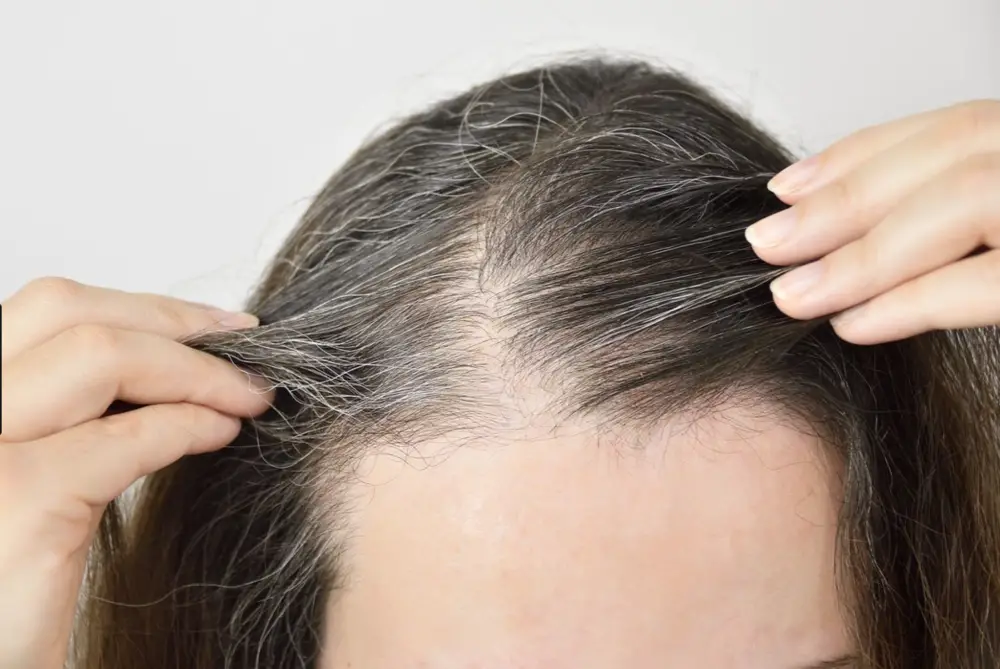
Page Contents
Telogen effluvium is non-scarring hair loss that typically happens after a traumatic event causes a “shock” to the body’s system.
This “shock” can cause the hair follicles to stop growing and fall into the resting phase.
That resting phase will last for up to three months, and after that time, a substantial quantity of hair will drop off.
Telogen effluvium can change hairs all around the body. However, usually, hair loss on just the scalp is indicative.
What Causes Telogen Effluvium?
Telogen effluvium seems to have an impact on more women as compared to men, given that women experience a lot of the triggering instances, like giving birth.
Acute telogen effluvium can happen when appropriate inciting circumstances take place, and it can happen at any age.
The most typical time it happens is about one to three months after childbirth in women.
A common and typical sign of telogen effluvium would be a severe shedding episode of hair about 100 days after a woman gives birth.
The provocative element is most likely the sudden hormonal changes that happen in the last part of pregnancy.
How Long Does Telogen Effluvium Last?
Thankfully, telogen effluvium is not a permanent hair loss issue, as your hair will usually grow back within 3-6 months, which is typically how long it takes for the hair to begin growing again (aka the anagen phase).
If your hair is longer or has more volume, it may take a bit longer for it to return to its previous luster.
If you still are showing signs of telogen effluvium even after 6-12 months of a traumatic event, you may be experiencing chronic telogen effluvium.
Common Triggers of Telogen Effluvium
Other triggers of telogen effluvium include severe and acute blood loss, hyperthyroidism, major surgery, extreme psychological stress, crash diets, menopause, severe physical trauma, and illness.
Chronic illnesses like malignancy and systematic lupus erythematous can also cause telogen effluvium.

How to Treat Telogen Effluvium
Hair transplants are not recommended to treat telogen effluvium.
Instead, people should use a topical treatment such as TRICOMIN, as this is a temporary hair loss issue versus a complete loss of hair.
It can also be helpful to use Minoxidil 5% to treat acute hair loss.
Some telogen effluvium can be caused by an inadequate diet, and it can be avoided by eating a well-balanced diet that supplies sufficient iron, protein, and other nutrients.
Any deficiency of folic acid, vitamin B12, and iron can delay the growth of hair, so make sure your body has enough supply of these.
Tired of chasing down hair growth solutions without the results you’re after? Make sure you’re using the 3 hair growth products known to work before experimenting with alternative solutions. You may be surprised with how effective these 3 alone can be.







